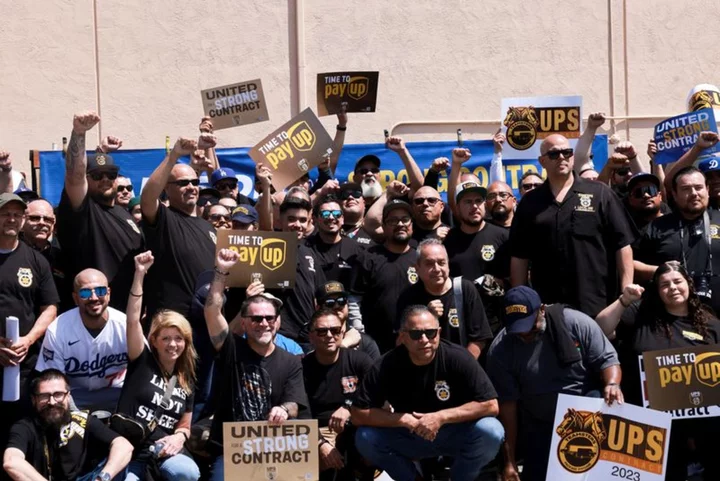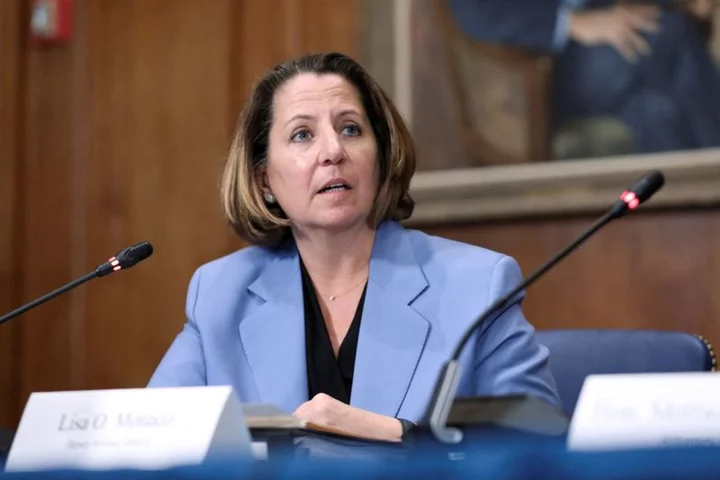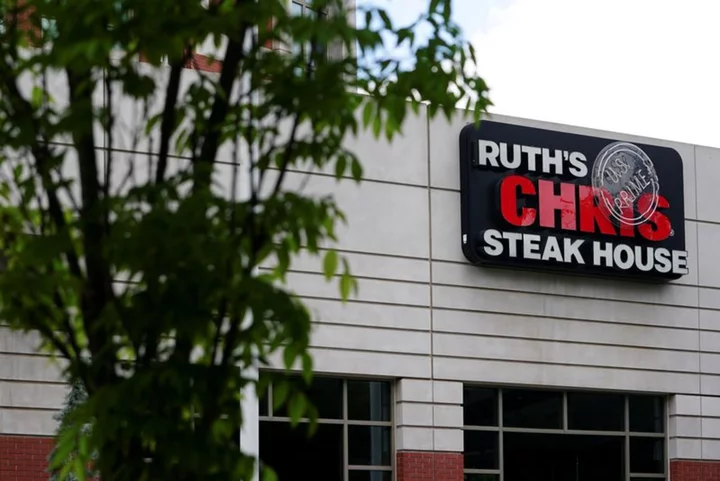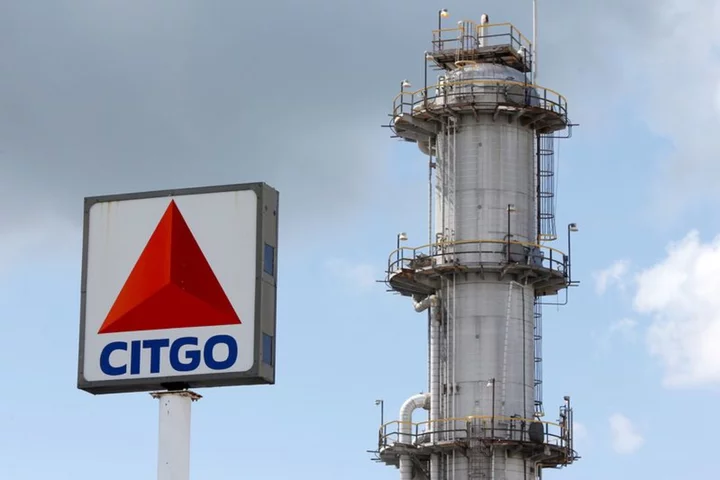By Lisa Baertlein and Aishwarya Nair
Thousands of UPS workers will start voting on their tentative contract agreement with the delivery giant on Thursday after local leaders of the International Brotherhood of Teamsters endorsed the union's deal earlier this week.
The tentative deal covering 340,000 Teamsters-represented workers at United Parcel Service averted a threatened strike that could have wreaked havoc on the U.S. economy by disrupting about a quarter of the nation's parcel shipments.
In a meeting in Washington on Monday, Teamsters local leaders voted 161-1 for the deal. The agreement would raise wages for all UPS workers, provide another paid holiday, end a two-tier wage system for drivers and add air conditioning to new models of the company's ubiquitous brown trucks, according to the Teamsters.
Leaders from Teamsters locals oversee messaging and "sell" the deal to members, who vote through Aug. 22.
Analysts who follow UPS expect workers to ratify the deal but caution that anti-corporate sentiment is running high and note that some part-timers are grappling to make ends meet.
An employee group called Teamsters Mobilize is running a "Vote No" campaign seeking a better deal for part-time workers, whose hourly wage is significantly below that of full-timers, said Peter Lyngso, a group leader in Chicago who joined UPS more than a year ago.
The group is seeking part-time base pay of at least $25. The tentative deal would raise it to $21 from the current $16.20.
Jose Negrete, a 25-year part-time worker in Anaheim, California, joined Teamsters Mobilize and is voting no.
"The contract does not go far enough," Negrete said by telephone as he waited to order at an In-N-Out burger joint, which advertises jobs at roughly the same pay as UPS's new part-time base rate.
It remains to be seen whether the group can mobilize enough part-timers, who account for about half of UPS workers. Their turnover is high and 10% or fewer typically vote on contract deals, Lyngso said.
Overall turnout for the last ratification vote in 2018 was 44%.
Meanwhile, representatives from 14 out of 176 locals did not attend Monday's meeting, the union said. It was not immediately clear why.
Local 89, one of the largest with about 10,000 workers in Louisville, Kentucky, was the sole dissenting vote, one person familiar with the meeting outcome told Reuters.
Its representatives did not respond to a request for comment.
(Reporting by Lisa Baertlein in Los Angeles; editing by Susan Heavey)









